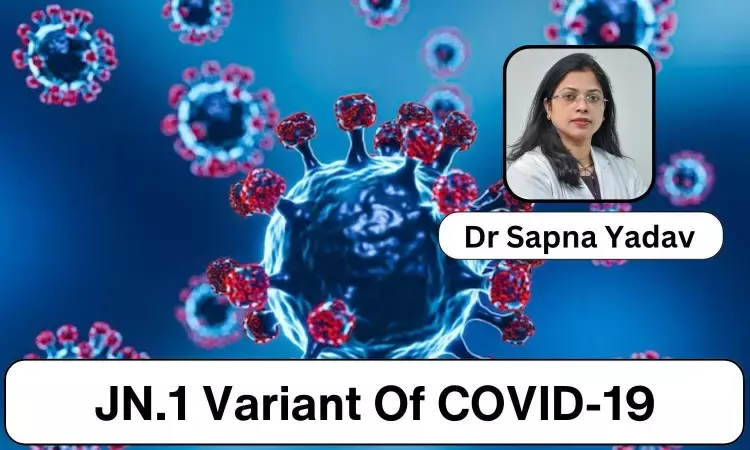- Home
- Medical news & Guidelines
- Anesthesiology
- Cardiology and CTVS
- Critical Care
- Dentistry
- Dermatology
- Diabetes and Endocrinology
- ENT
- Gastroenterology
- Medicine
- Nephrology
- Neurology
- Obstretics-Gynaecology
- Oncology
- Ophthalmology
- Orthopaedics
- Pediatrics-Neonatology
- Psychiatry
- Pulmonology
- Radiology
- Surgery
- Urology
- Laboratory Medicine
- Diet
- Nursing
- Paramedical
- Physiotherapy
- Health news
- Fact Check
- Bone Health Fact Check
- Brain Health Fact Check
- Cancer Related Fact Check
- Child Care Fact Check
- Dental and oral health fact check
- Diabetes and metabolic health fact check
- Diet and Nutrition Fact Check
- Eye and ENT Care Fact Check
- Fitness fact check
- Gut health fact check
- Heart health fact check
- Kidney health fact check
- Medical education fact check
- Men's health fact check
- Respiratory fact check
- Skin and hair care fact check
- Vaccine and Immunization fact check
- Women's health fact check
- AYUSH
- State News
- Andaman and Nicobar Islands
- Andhra Pradesh
- Arunachal Pradesh
- Assam
- Bihar
- Chandigarh
- Chattisgarh
- Dadra and Nagar Haveli
- Daman and Diu
- Delhi
- Goa
- Gujarat
- Haryana
- Himachal Pradesh
- Jammu & Kashmir
- Jharkhand
- Karnataka
- Kerala
- Ladakh
- Lakshadweep
- Madhya Pradesh
- Maharashtra
- Manipur
- Meghalaya
- Mizoram
- Nagaland
- Odisha
- Puducherry
- Punjab
- Rajasthan
- Sikkim
- Tamil Nadu
- Telangana
- Tripura
- Uttar Pradesh
- Uttrakhand
- West Bengal
- Medical Education
- Industry
Understanding The JN.1 Variant Of Covid-19: A Comprehensive Overview - Dr Sapna Yadav

Viruses naturally evolve over time, leading to the emergence of new variants. The latest variant of interest is JN.1, characterized by a spectrum of symptoms ranging from asymptomatic infection to severe illness. With a global prevalence of 27.1%, the World Health Organization (WHO) has designated JN.1 as a separate variant from the parent lineage BA.2.86.
Discovery and Origin
The JN.1 subvariant was first identified in Kerala, India, through routine surveillance by the Indian SARS-CoV-2 Genomics Consortium (INSACOG). The case was detected in a positive RT-PCR sample from Karakulam in Thiruvananthapuram district on December 8.
Genetic Distinctions
Differing from Pirola or BA.2.86 by a single mutation in its spike protein, JN.1 shares similarities with previous Omicron strains in terms of high transmissibility and mild symptoms. Notably, this variant has the ability to evade the immune system and exhibits increased transmissibility.
Symptoms
Initial symptoms of JN.1 infection include fever, runny nose, sore throat, headache, diarrhea, nausea, vomiting, abdominal pain, and, in some cases, breathlessness. Importantly, there is currently no evidence suggesting increased severity or higher fatality rates compared to other variants.
High-Risk Factors
Certain factors increase the risk of infection and progression to severe disease. These include advanced age, male sex, smoking, chronic obstructive pulmonary disease (COPD), diabetes mellitus (DM), hypertension (HTN), coronary artery disease (CAD), malignancy, and being unvaccinated.
Diagnosis
The diagnosis of JN.1 infection involves clinical symptoms and signs, COVID-19 antigen or PCR testing, and, in cases of moderate to severe disease, chest X-ray or CT chest and blood investigations.
Treatment
For mild to moderate symptoms, symptomatic treatment with antipyretics, analgesics, cough syrups, antiemetics, antacids, probiotics, and increased oral fluids is recommended. Oxygen inhalation is advised for moderate to severe disease with SpO2<93%. In severe cases, non-invasive ventilation (NIV), bilevel positive airway pressure (BIPAP), or invasive mechanical ventilation (IMV) may be required.
Vaccination
Current vaccines remain effective against severe disease and death from JN.1 and other circulating variants. However, it is crucial to continue practicing protective measures even after being fully vaccinated.
Prevention
Preventive measures include wearing masks in crowded or poorly ventilated areas, maintaining a safe distance, practicing respiratory etiquette, regular handwashing, staying up-to-date with vaccinations (including booster doses), home isolation for those with clinical symptoms, and testing for COVID-19 in symptomatic or exposed individuals.
Dr Sapna Yadav (MBBS, DNB (Respiratory Diseases), MD (Pulmonology Medicine), IDCCM, EDARM) is a Senior Consultant (Pulmonology) at Sarvodaya Hospital, Greater Noida having over 12 years of experience as a specialist in the field of Pulmonology. She specialises in Obstructive Airway Diseases, Sleep Medicine, Interventional Pulmonology, etc.


